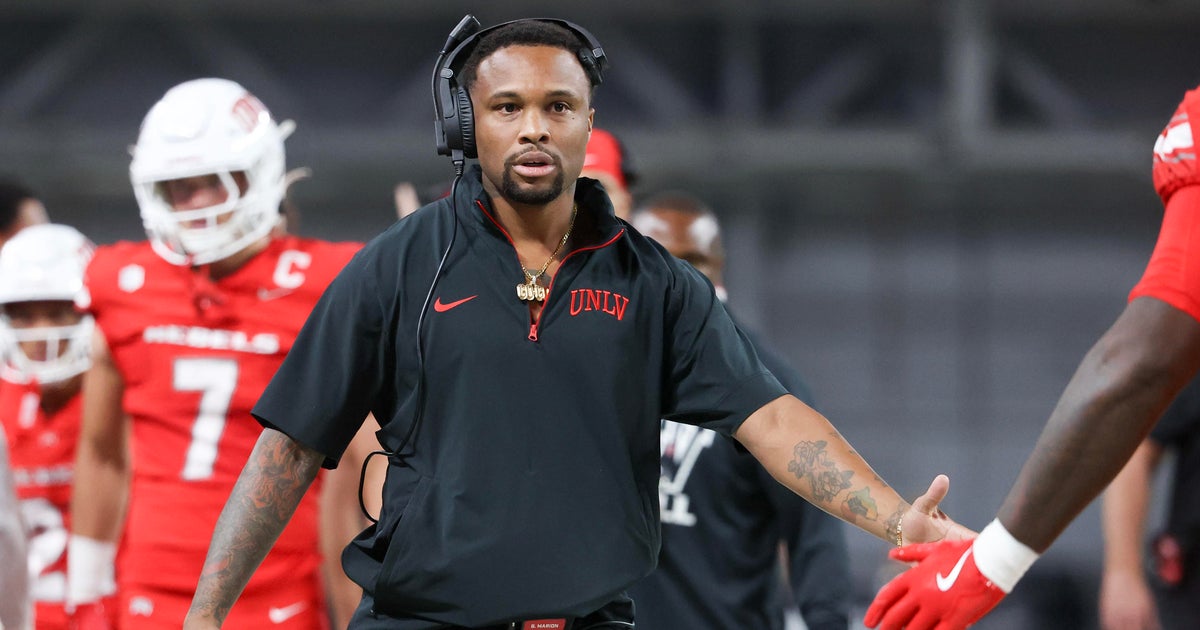NHL Receives Expansion Bids From Las Vegas, Quebec City
(AP) -- Bill Foley has put his money down on an NHL expansion team in Las Vegas. And Quebec City is getting a second chance at being a pro hockey market.
The two cities![]() moved one step closer to joining the NHL as expansion teams after the league announced Tuesday it has received applications from prospective ownership groups in both markets, a day after a deadline for submissions.
moved one step closer to joining the NHL as expansion teams after the league announced Tuesday it has received applications from prospective ownership groups in both markets, a day after a deadline for submissions.
The Las Vegas bid was submitted by Foley, a billionaire businessman who has spent the past seven months exploring the level of interest for professional hockey in the gambling mecca. Montreal-based Quebecor, a Canadian media and telecommunications giant, submitted the bid for Quebec City, which previously served home to the NHL's Nordiques.
Quebecor also has ties to the NHL after its cable network, TVA Sports, won the rights to become the league's official French-language broadcaster last year.
As part of their application![]() , bidders were required to submit a $10 million down payment, $2 million of which was nonrefundable. There are at least two more steps in the expansion process, and the bids require approval from the NHL's Board of Governors.
, bidders were required to submit a $10 million down payment, $2 million of which was nonrefundable. There are at least two more steps in the expansion process, and the bids require approval from the NHL's Board of Governors.
The league doesn't anticipate expanding before the 2017-18 season and NHL Commissioner Gary Bettman has proposed an expansion fee of at least $500 million. That's a significant jump from the $80 million fee paid by the Columbus Blue Jackets and Minnesota Wild, when the NHL last expanded to 30 teams in 2000.
Without going into specifics, the NHL said it received and responded to application requests from 16 separate groups since the process opened July 6.
The league placed an emphasis on groups having the financial capacity to establish a franchise, as well as anarena![]() either in place or under construction.
either in place or under construction.
"Our purpose in initiating the expansion process in the manner we did was not only to explore the possibility of admitting new members to the NHL but also to set out realistic guideposts to distinguish between bona fide expressions of interest from those indications of potential interests which were, at best, merely hopes or aspirations," the league said.
"Apparently only Foley and Quebecor have the confidence in their ability to secure an arena and suitable ownership capability to move forward with this process," the league added.
The conditions quickly thinned the ranks of prospective markets, including Seattle and a second franchise in Toronto.
Several separate Seattle groups have expressed interest in establishing an NHL team in the Pacific Northwest, where the lack of an arena plan in place remains a major stumbling block. Portland, Oregon, and Kansas City were also mentioned as potential markets.
With the application process closed, the league intends to "focus exclusively" on the two applications that were submitted.
In Las Vegas, Foley has secured more than 13,200 season-ticket deposits for a potential team. And there's a multipurpose arena under construction near the Las Vegas Strip and set to open next spring.
A team in Las Vegas would have natural and existing regional rivals because of its proximity to Arizona and California.
Las Vegas would be a newcomer to North America's major professional sports landscape. The Canadian Football League had a brief foray into Las Vegas during its failed U.S.-expansion bid in 1994. The Las Vegas Posse lasted just one season in town.
In Quebec City, the publicly funded, 18,259-seat Videotron Centre is set to open in September. It replaces the small and outdated Colisee, which previously served home to the Nordiques, who relocated to Colorado to become the Avalanche in 1995. Quebecor manages and owns the naming rights to the new arena.
With Quebec City, the NHL would add an eighth Canadian franchise.
Quebec City is but a 2-1/2 hour drive from Montreal and a team there would re-establish what was a once-heated provincial rivalry with the Canadiens.
The potential additions would lead to the NHL tweak its divisional alignment, though it's uncertain whether it would result in a major change to the league's unbalanced conference setup. The Eastern Conference currently features 16 teams, two more than the West.
Bettman has previously said that if a 16-14 split works, he doesn't see a reason why a 17-15 split wouldn't.
Updated July 21, 2015




